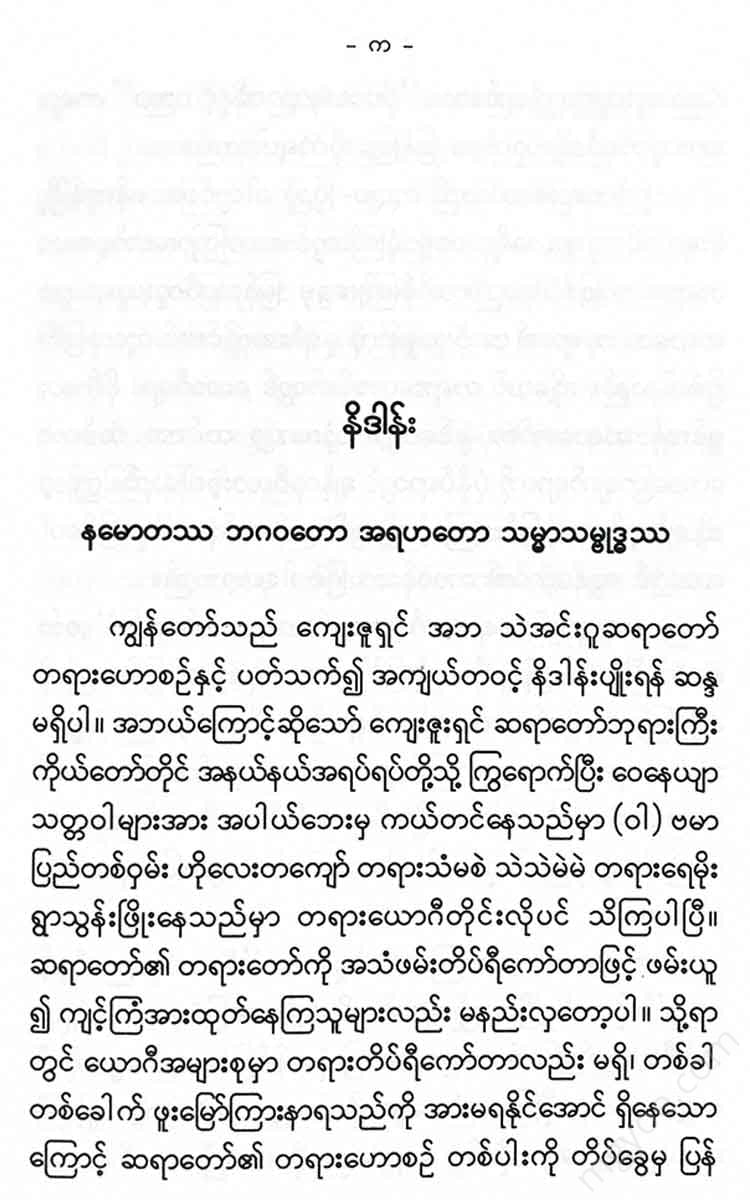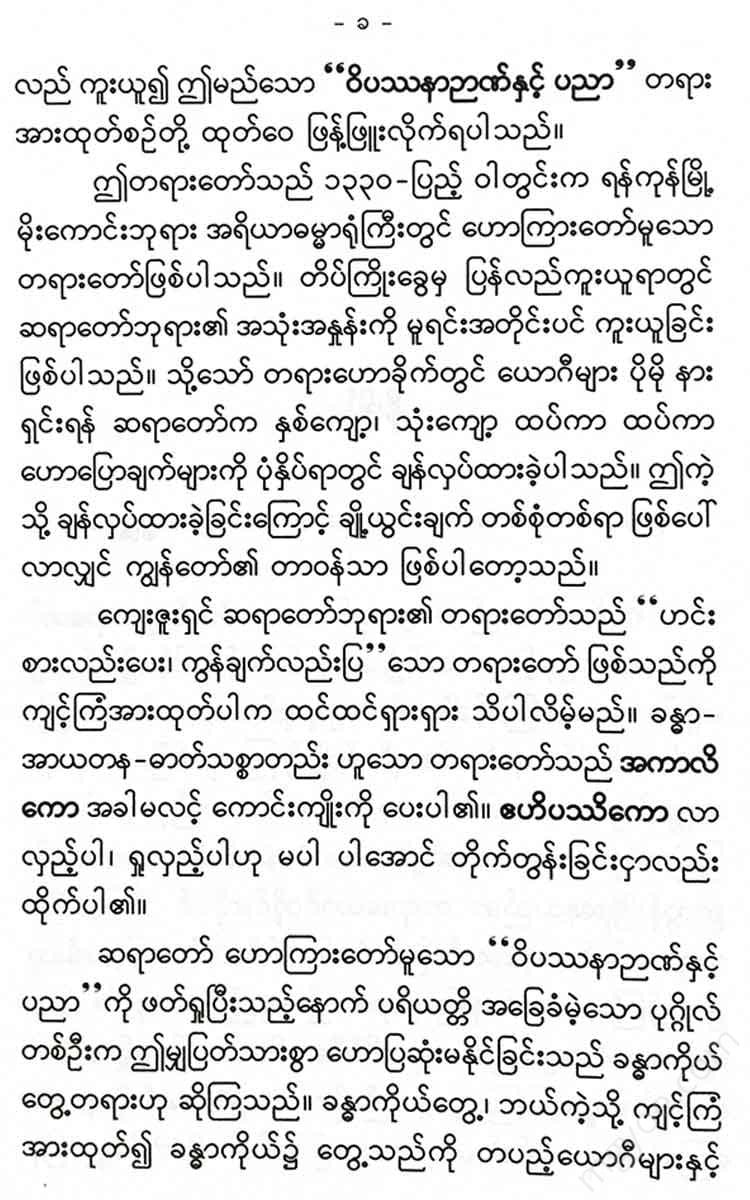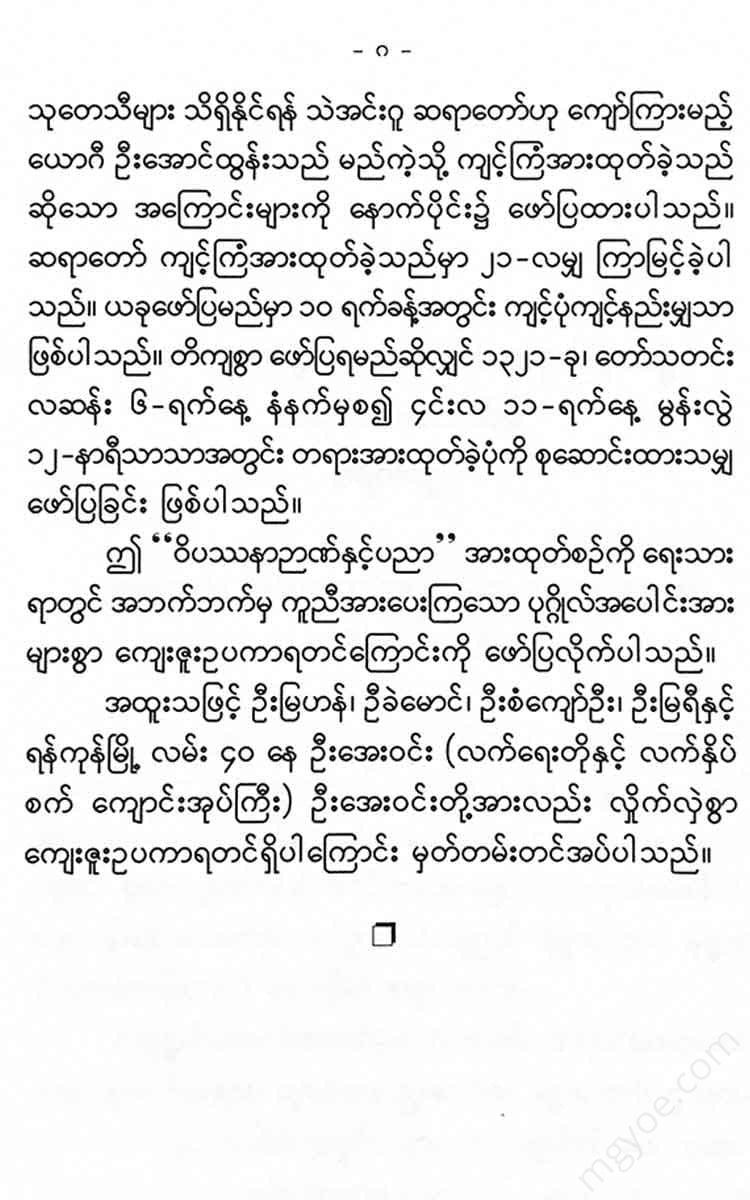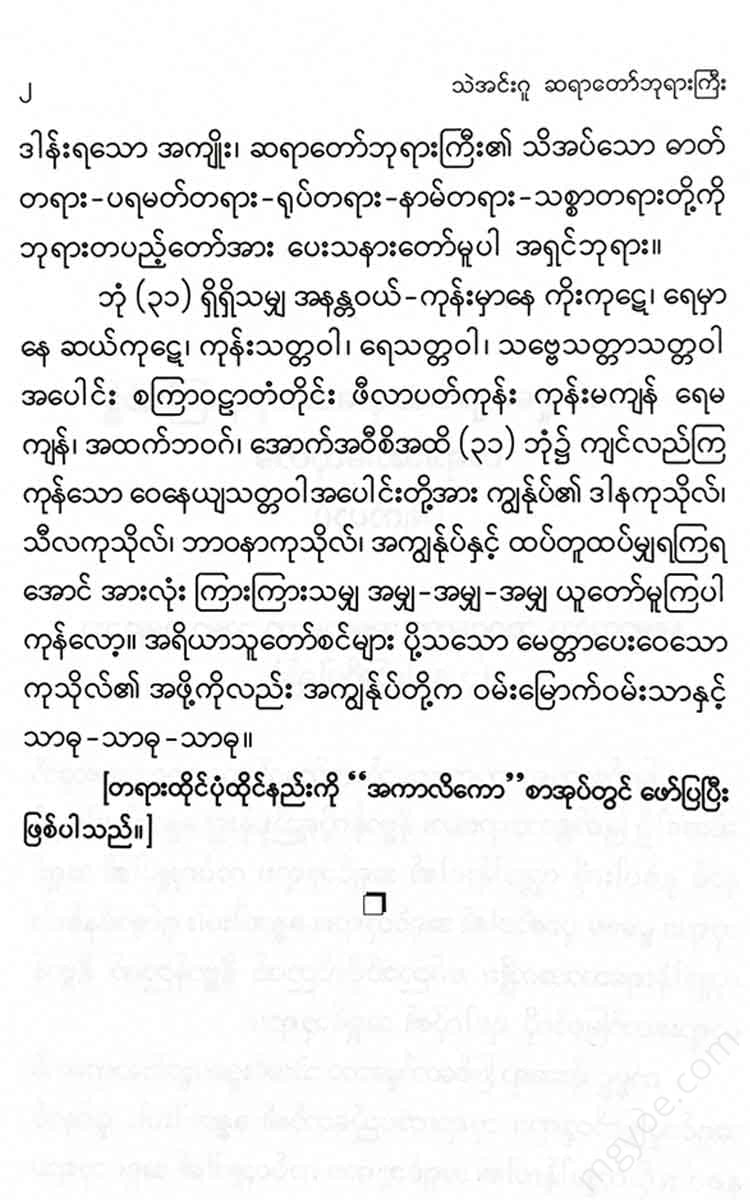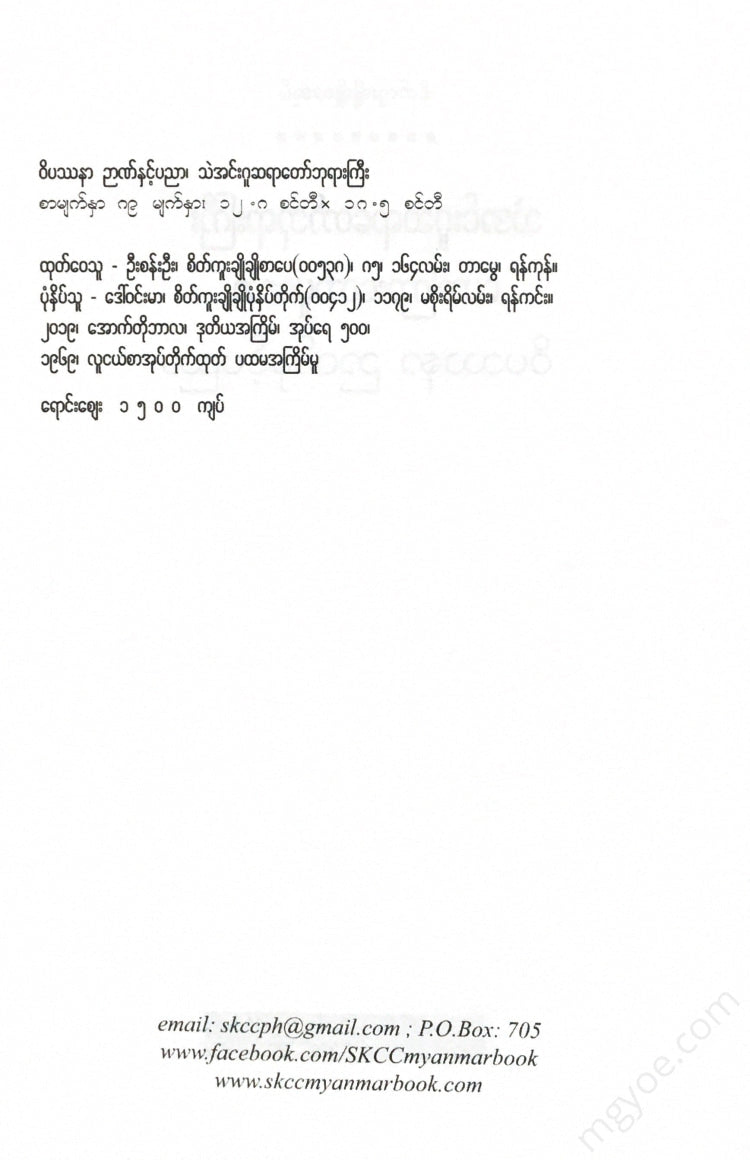စိတ်ကူးချိုချိုစာပေ
Theingu Sayadaw - Vipassana wisdom and knowledge
Theingu Sayadaw - Vipassana wisdom and knowledge
Couldn't load pickup availability
The fifth quality, egoism.
Daka Gyi, I don't know what to preach today. U Pyin Sin teaches at the Sand In Cave three times a day, to monks, nuns, and yogis. He preaches without stopping. While he is preaching, the yogis in Moe Kaung say, "Your Majesty's disciples are only allowed to go on Saturdays and Sundays. There are people who can come to the Sand In Cave during the rainy season. There are people who can't come. For those who can't come, please save them from the dangers of the moon, one week on Saturdays and Sundays." Daka Gyi So I have to come again.
U Pyin Sin doesn't know what to preach today. It's not a memorized text, so I'll just have to preach in the present, big brother.
(That's right, Lord Buddha.) The Buddha said that all Dhamma is Dhamma. That's what the Buddha said, (That's right). Seeing is Dhamma, hearing is Dhamma, smelling is Dhamma, sleeping is Dhamma, eating is Dhamma, touching is Dhamma, knowing is Dhamma, sitting is Dhamma, all are Dhamma. (That's right, Lord Buddha.)
1. Example of the Upadhana Dharma
Just now, in the room, the old man, U Aye Kyu, told a story. What he said was about two merchant friends. U Pyin Sin was listening to the story they were telling. (That's right.) At that moment, U Pyin Sin didn't memorize the Dhamma, but the present Dhamma appeared. (That's right.) What the old man, U Aye Kyu, said was that the two merchants went to buy goods. On the way, what did the old man see? They saw hemp. They saw hemp for making clothes. When they saw that the goods they brought were not as valuable as hemp, so the two merchants unloaded their goods and carried those hemp.
They continued their journey, and halfway through the journey they found clothes again. When they saw the clothes, one of them said, "You are a wise man, you must be wearing these clothes at home." When they saw the clothes ready, they threw away the clothes, saying, "These clothes are useless." They did not take the clothes and carried the clothes. One of them said, "I am sorry for the clothes I have brought from afar," and continued to carry the clothes. This is to explain the reason. One of them threw away the clothes and carried the clothes.
What did you find in front of you? I found money again, Dakagyi, (correct). When I found money again, one person said that these clothes are beautiful. When I found money, I would take the money, so I threw away the clothes and took the money again. Another said that I would not take the money with the hand I was carrying, but I would just wash it, and so I washed it again. When I found money again, I did not take it, Dakagyi, (correct). When I found clothes, I did not take the clothes either, Dakagyi, (correct). One person came carrying wash and when he found clothes, he took the clothes and threw the wash, Dakagyi, and, when he found money from the clothes, he threw away the clothes and took the money again, Dakagyi. Another person, carrying wash, did not take anything.
Then the two merchants went on and found gold again. When they found gold again, the merchant, a great merchant, put the money aside and took the gold again, great merchant, (That's right). Which is more valuable, money or gold? Great merchant, (Gold is valuable, Lord). Then the person who brought the money carried the gold again, (That's right). The person who first carried the gold did not take it again, that's right. I'm getting tired, this time, this time, I don't take any valuable things except this gold, I don't take them. At the same time, the big money is attached to the gold, (That's right, Lord).
So I didn't take any money, I didn't take any gold, I just carried the bundle and carried it. What I saw in front of me was that I saw rubies, precious stones, and jewels. The person who carried the gold took the precious stones again (this audience will take only the precious stones, my God). I can't say. Should I take them or not? And I don't know if I will carry the bundle. Whether there is no upadhan for the bundle or not, we will have to wait and see. The person who carried the bundle just now found the precious stones, but the upadhan is still attached to the bundle. I have come from a long way, and I have not thrown these upadhans.
I kept on carrying it, saying, "No more." I couldn't get the ruby. I couldn't get the money, the gold, the cloth, I could just carry it. The person who got the ruby became rich. That's an example, right? (Yes, sir.)
Just now, the cloth carrier, the great sage, said, "I have to carry this cloth. I cannot throw this cloth away." The great sage, the great sage, said, "So, just now, a merchant knew that the cloth was worthless. When he saw cloth, he rejected the notion of cloth. He took the valuable cloth. When he saw money, he rejected the notion of cloth as worthless and took the valuable money. When he saw the notion of money as valuable, he said, "Money is a journey." He rejected the notion of cloth and accepted the notion of money as valuable. (That's right, Venerable). What is the nine stages of rejection? He rejected the worthless possessions and took the valuable possessions. (That's right, Venerable, there is no person carrying the cloth in this audience.) Listen carefully, (That's right, Venerable). I will explain the Dhamma so that you can understand it. I want to teach wisdom.
2. If you know, come out of the hole you know.
When U Pyin Sing went to Myeik, Dawei, and Shan states to preach, he used to ride a phoka, so he only used a phoka. A phoka is an airplane. Now, the monk U Thaung Sein, who came to practice dharma at U Pyin Sing Cave, said, “I understand, my disciple.” The monk showed me a phoka, a fast jet, not a phoka. The phoka is about 500 miles per hour, monk. From that day on, I will remove the phoka and fly in a jet, (That’s right, monk). Where is the jet?



